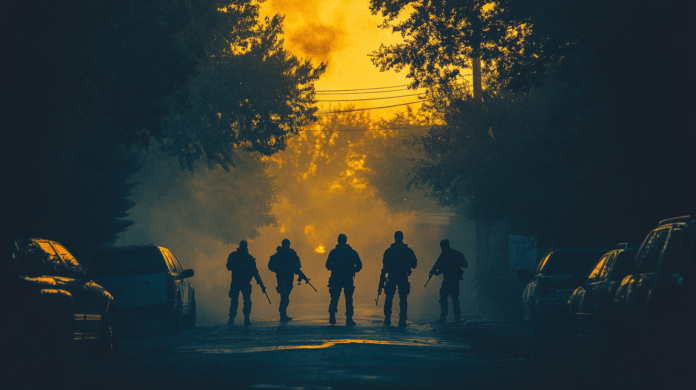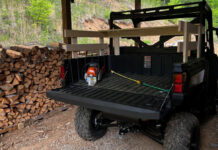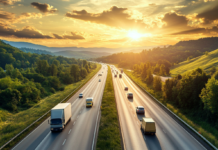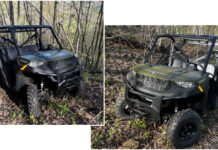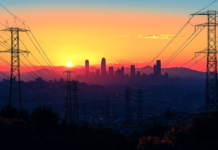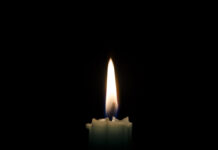I see this question occasionally on forums and Reddit, and it always amazes me how many people are prepping for just one or two specific things. Yes, hurricane season starts in less than two weeks, but it is hardly the only disaster that may strike. I guess it is good to have a target, an event you want to be prepared for, when you start prepping. If you live in a hurricane-prone area, you can direct your energy towards preparing for a hurricane. If you expect to be without power for a week, you can prep for that.
But why limit yourself? In my opinion, it is better to be a well-rounded prepper and prepare for pretty much anything and everything by focusing on food, water and shelter, followed by medical/first aid, self-defense, and communications. I think you are better off to add to your general preps to cover a specific event, rather than limiting your preps to that event (unless you have little or no money to spend on prepping).
For example, if you prep for a chemical leak because you live near a chemical plant or a railroad, that’s understandable. But having a gas mask will not help you in an economic collapse. Likewise, storing potassium iodide or iodate to protect yourself from radiation is useless if there is hurricane or earthquake, unless the earthquake hits a nearby nuclear reactor. Yet in almost any disaster scenario, you would benefit by having stored food to eat, uncontaminated water to drink, and somewhere to shelter in place.
Broad Preparations
I stockpile goods and try to be self-sufficient to prepare for the day we lose outside support, are cut off from society, and when there is no way to restock or resupply. That was useful when Hurricane Helene hit, even though I didn’t prepare specifically for hurricanes, flooding, road closures, or a landslide. It will also be useful in an economic collapse or hyperinflation. While this broad approach to prepping will be useful in almost any disaster, we also have specific preps, like the aforementioned gas masks and potassium iodate.
Here’s another example: If there is a nationwide power outage like Spain saw a couple weeks ago, having some cash on hand will be useful. Cash will also be handy if there is a run on the bank, or if the government declares a banking holiday for a week or two for an unforeseen reason. Extra cash won’t hurt if you become unemployed or experience a personal economic disaster. It’s a basic, all-around prep, just like keeping your gas tank at least half full.
Start with the basics. Then increase your overall level of preparedness, focusing on the preps that will help you in almost any emergency. When you have the basics covered, you can get specific.
The Big Three
Any disaster will be worse if you are hungry. Survival is more difficult if you become weak and tired because of a lack of fuel for your body. Starvation makes it difficult to think clearly and to perform physical labor. You may live several weeks without food, but most people will become weak with hunger and incapable (or at least unwilling) to do any work. Plus, famine was the deadliest killer in the 20th century; it only makes sense to prepare for it.
A lack of water will kill you in a few days. Water contaminated with bacteria, viruses or parasites can also sicken you and lead to death. A source of clean, safe drinking water—whether stored or filtered/purified—is imperative in any disaster scenario. It will also contribute to good hygiene, preventing illnesses. Like starvation, dehydration will make you weak and incapable of doing work, but the lack of water will kill you quicker than a lack of food.
Shelter is important because it helps you survive in adverse environments, whether that is a blustery 15°F winter day or the scorching rays of the sun on a 104° summer afternoon. Dying from exposure can be mitigated by having shelter, especially if it has wood heat in the winter and can provide cooling shade in the summer. It also provides some protection from man and beast, whether that is a mosquito or a bear, a petty criminal or a marauder.
Shelter includes your clothes and outerwear, your footwear and your bedding. It can be your home or a tent, a cave or a lean-to. The advantage of bugging in is you have good shelter that is well equipped to protect you from the elements.
We call food, water and shelter “The Big Three” for good reason. Start your preps here, and you will be better prepared for almost any event that makes it onto people’s list of things to prepare for.
Natural Disasters
Here is a list of natural disasters you can prep for. Use this for input, but also use common sense. For example, if you live in Denver, a tsunami is unlikely to be on your potential disaster list. If you live in Hawaii, however, tsunamis and volcanoes might be near the top of your list.
- Hurricane
- Tornado
- Blizzard/severe winter storm, a polar vortex, or other unusually cold weather
- Large, damaging hail
- Destructive winds
- Flooding
- Earthquake
- Avalanche or landslide
- Volcanic explosion with poison gas and/or lava
- Ash from a volcano many miles away
- Drought and/or extreme heat
- Fire, either a wildfire or fire at your home
- An asteroid or comet colliding with earth
- Meteors that reach the ground
- Tsunami or tidal wave
- A virus or other disease that becomes a pandemic
- Wildlife attack
- Solar flare or CME
- Heart attack, stroke, or other sudden health emergency
Man-made Disasters
Some disasters people prep for could be caused by humans. Some of these examples would affect a large swatch of the world or a country, while others are regional, local, or even personal.

- An EMP strike
- Nuclear war
- Conventional war
- A nuclear meltdown or other radiation emergency
- Terrorism
- Looting
- Becoming a victim of crime
- Getting shot
- Inflation or hyperinflation
- A recession or depression
- An economic collapse
- A collapse of the government or the global order
- Hacking attack that shuts off utilities, disrupts banking, or causes damage
- The power grid goes down
- An accidental death in a car, plane, train or other vehicle
- Supply chain disruption or collapse
- Government confiscation of private property
- Unjust arrest and conviction
- Martial law
- Persecution by a government agency/abuse of government power
- Medical event and errors
Ranking and Prepping
Pick the five or ten from each list (or add your own) you think will be most likely to happen to you based on your fears, your geographic location, or the historical record. Then rank them from top to bottom.
For us, the top item would be a power outage, which plagues this area. We’ve had four so far in May, for example. That’s why we have a generator and have since added a solar power system with a whole-house battery backup.
Our second priority would be bitter cold with blizzard-like conditions. We are prepper for that by having wood heat, plenty of firewood, and a home built to withstand the winter weather. We also have appropriate clothing and bedding, including down comforters, and keep winter gear in our vehicle emergency kits.
Although not on our list prior to Hurricane Helene, our third priority would be a landslide and/or weather that destroys the road. This doesn’t have to be a hurricane, as any large amount of rain could cause the culverts to overflow and wash away, trapping us on the homestead again until repairs can be made. I have addressed the landslide to some extent, but there is not much we can do about the road other than hope the next 100-year flood doesn’t occur for at least another 25 years.
Wildfires would be number four, with five being inflation or an economic collapse.
Meanwhile, the same preps we have for these emergencies will serve us well in many of the other events listed above. For those few that aren’t addressed, we’ll just have to hope our insurance covers it.
Location, Location, Location
You’ve no doubt heard the old saw about the three most important things in real estate (location, location, location). Location is also important for prepping. Your geographic location has a great deal to do with what emergencies are likely to strike where you live. It’s often a tradeoff, with most areas having pluses and minuses. There is no perfect prepper location, nowhere that is protected from everything. I prefer to avoid urban areas with high population density, but others choose to live there or to prep in the suburbs.
Your residence is not only your shelter, but your storage depot. It may also include land where you can farm, garden, or raise livestock, thereby provide you with a greater chance of survival in a lengthy disaster scenario. A tropical environment where you can garden year round and have citrus trees could also be an advantage. A location on the ocean might give you access to fish and shellfish not available elsewhere. If possible, select your location with preparedness and survival in mind.
You can also upgrade your home, improving it to make it more likely to weather a disaster. For us, that meant starting a garden and building the chicken coop. For someone else, it might mean building a safe room or an underground bunker. Someone else might install HEPA filters on their HVAC system to filter out radioactive particles, biological hazards, or ash from a volcano upwind. Look at your list of potential events and consider what upgrades will help you survive them.
What are You Prepping For?
In the end, it doesn’t matter what you are prepping for, as long as you prep, preferably for a wide scope of disasters.
If you have prepped for the one disaster you fear most, don’t stop. Keep prepping on a slow and steady basis. Improve your preps. Rotate your food. Stockpile more ammo.
If you run out of storage space, then prep your body and mind. Take classes to learn new skills and practice old ones.
By prepping on a slow and steady basis, before you know it, you will be well prepared for a myriad of scenarios. Rome wasn’t built in a day. Neither were my preps. Make prepping a lifestyle, and you will always be ready for whatever the future holds.

